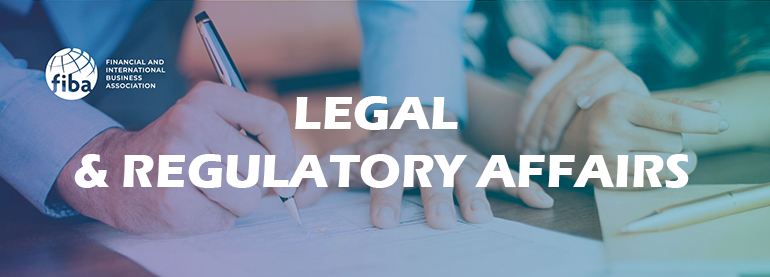With the recent explosion of cryptocurrencies and related businesses, regulators throughout the world are finding themselves increasingly under pressure to define the landscape. Stakeholders are now demanding appropriate legal frameworks that will provide protections to consumers, clarity to investors, and level the playing field for all financial assets.
In the U.S., the regulation of virtual currency businesses largely falls on the states. Officials in Florida, a state that currently lacks significant legislation pertaining to virtual currency businesses, not only understand the need for regulatory clarity but have taken concrete steps to make it happen.
Seeking to contribute to this process, FIBA has brought to the table its substantial expertise in legal and banking affairs. It has also hosted a number of seminars and panels to brainstorm on virtual currency regulation.
Last month, under the leadership of Daniel Stabile and Andrew Barnard, FIBA’s Innovation Committee co-chairs, as well as Kim Prior, FIBA’s Legal and Regulatory Affairs Committee chair, FIBA representatives attended a closed meeting in Tallahassee with other leading sponsors of this initiative—the Florida Bar Association, the state’s CFO Office and the Florida Office for Financial Regulation (OFR).

“This is a learning process for everyone. It’s important for FIBA to be involved from the early stages, have a voice and help address this ‘wild west’ which is the virtual currency space today,” said Barnard.
This was the first of several steps towards achieving sensible regulation on this important topic. The state of Florida recognizes the opportunity to lead where other states have failed and to pave the legal way to attract a host of virtual currency players.
“FIBA has been involved because it’s in the best interest of the international banking community to establish some clarity and fair parameters for all the players involved in this space,” said Stabile.
According to the FIBA team present at the Tallahassee meeting, there was widespread consensus among the participants to cautiously move forward with legislation or regulation specifically applicable to virtual currency businesses—and FIBA will continue to contribute. Among other things, it plans to help organize a seminar in Tallahassee to educate the other members of this task force on the underlying technology of cryptocurrencies and related concepts such as ICOs.
“This was a good starting point. And it was great to have FIBA’s Innovation and Regulatory Committees working in collaboration with the OFR towards the goal of bringing this important regulation to fruition,” concluded Prior.

